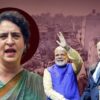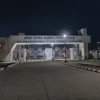In recent weeks, Indian authorities have expelled hundreds of Bengali Muslims to Bangladesh without proper legal procedures, according to Human Rights Watch (HRW). Many of those deported were Indian citizens, not undocumented immigrants, and had lived in India for years. HRW says this campaign, led by the Bharatiya Janata Party (BJP) government, targets Bengali-speaking Muslims and violates both domestic laws and international human rights norms.
“India’s ruling BJP is fueling discrimination by arbitrarily expelling Bengali Muslims from the country, including Indian citizens,” said Elaine Pearson, Asia Director at Human Rights Watch. “The authorities’ claims that they are managing irregular immigration are unconvincing given their disregard for due process rights.”
The expulsions have intensified since May 2025. HRW interviewed 18 people in June, including victims and families. Many said they were pushed into Bangladesh by Indian border forces even though they held documents proving Indian citizenship. Some said they were beaten or threatened with weapons to cross the border.
Khairul Islam, a 51-year-old teacher from Assam, said he was forcibly expelled on May 26. “The BSF officer beat me when I refused to cross the border into Bangladesh and fired rubber bullets four times in the air,” he said. Islam managed to return two weeks later.
The Bangladesh Border Guard reported that between May 7 and June 15, more than 1,500 Muslim men, women, and children were pushed into Bangladesh, including around 100 Rohingya refugees from Myanmar.
The crackdown started after a deadly attack on tourists in Jammu and Kashmir in April. Since then, police across BJP-ruled states like Assam, Uttar Pradesh, Maharashtra, Gujarat, Odisha, and Rajasthan have detained hundreds of Muslims, mostly poor migrant workers. In many cases, they were expelled without verifying their citizenship.
A daily wage worker from Barpeta district, who had an appeal pending in the Supreme Court, said he was detained and pushed into Bangladesh in May. “I walked into Bangladesh like a dead body. I thought they [the BSF] would kill me because they were holding guns and no one from my family would know,” he said.
Maleka Khatun, a 67-year-old woman who cannot walk on her own, was expelled to Bangladesh on May 27. Her son Imran said, “I have no idea how to bring her back.” She had spent six years in a detention center and was out on bail. Her case is still pending in court.
In many cases, entire families are Indian citizens, but one member is declared an “irregular immigrant” due to minor document errors. Foreigners Tribunals in Assam, which handle citizenship matters, have been accused of bias and lack of transparency. Since 1964, they have declared over 165,000 people as illegal immigrants, often without giving them a fair chance to present their case.
Assam Chief Minister Himanta Biswa Sarma admitted that at least 330 people were expelled without even going to the tribunals. “If someone is identified as a foreigner, we won’t send them to a tribunal; we will just keep pushing them back,” he said.
In Maharashtra, migrant workers from West Bengal were also expelled. One of them, Nazimuddin Sheikh, 34, said, “The [BSF] did not listen to us when we told them we are Indian. If we spoke too much, they beat us. They hit me with sticks on my back and hands.” Sheikh was allowed back into India only after the West Bengal government intervened.
West Bengal’s Chief Minister criticized these actions, saying, “Is speaking Bengali a crime? You should be ashamed that by doing this, you’re making everyone who speaks Bengali appear to be Bangladeshi.”
In Gujarat, over 10,000 homes, mosques, and shops were demolished in areas where Bengali-speaking Muslims live. The demolitions were carried out without warning or legal procedures, which the Supreme Court has clearly stated is illegal. United Nations experts condemned these actions, warning that “national security” should not be used as an excuse for forced evictions.
In Odisha, 444 migrant workers were detained, with 44 still held in makeshift holding centers. Rajasthan officials reportedly detained over 1,000 people and deported at least 148. In Jaipur, a 25-year-old tribal man and his cousin were detained because of their names. Their father ran from one office to another to prove their identity and finally secured their release after nearly a month.
In a worrying trend, even Rohingya refugees, many of whom are registered with the United Nations, have been expelled. In May, Indian officials forced about 40 Rohingya into the sea near Myanmar, giving them only life jackets. Their current condition is unknown. UN special rapporteur Tom Andrews called this “an affront to human decency” and a serious violation of international law.
A 20-year-old Rohingya refugee said, “I escaped to India seeking safety and dignity, but the suffering did not end, it only changed form… My adulthood faces a fate worse than anything I’ve survived, being sent back to a land where the genocide still continues.”
India is bound by international laws like the International Covenant on Civil and Political Rights to protect people from being deported without fair legal procedures. However, Human Rights Watch says India is not following these rules. “The government is undercutting India’s long history of providing refuge to the persecuted as it tries to generate political support,” said Pearson.
Lawyer Aman Wadud, who has represented many such cases in Assam, said, “They are picking people up and there is no information about their whereabouts.” He filed a complaint with the National Human Rights Commission in May but hasn’t received any response.
In an open letter on June 5, more than 100 activists and academics urged the Indian government to stop the expulsions. “Pushbacks risk putting the people into grave peril,” the letter said.
Human Rights Watch has called on the Indian government to immediately halt unlawful deportations, stop the use of force, and provide proper legal protections to anyone facing expulsion.



























































